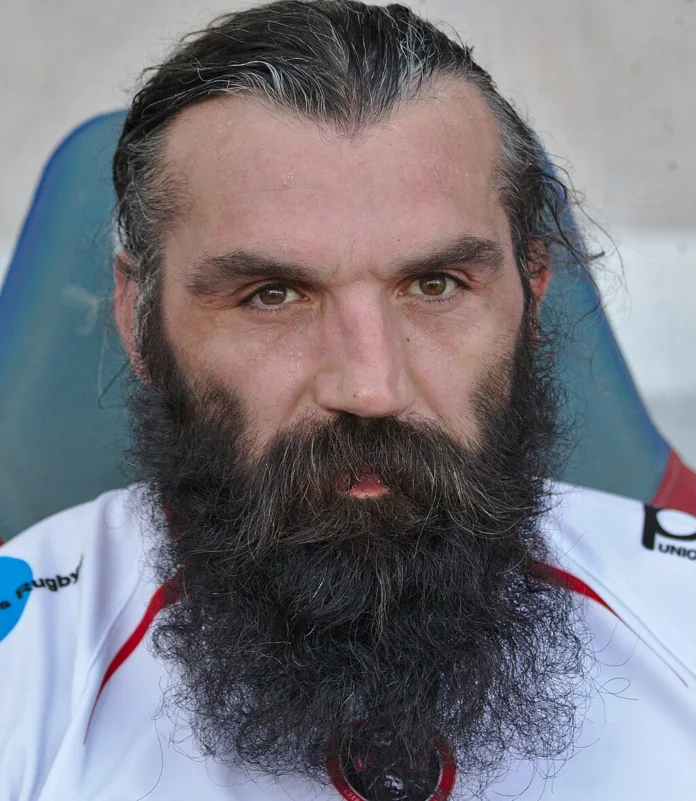French rugby Legend Sébastien Chabal says he remembers none of his 62 France caps amid brain injury fears
Sébastien Chabal, the iconic former France international known for his ferocious tackles and wild-man image, has made a devastating revelation: he cannot remember a single second of his professional rugby career.
Speaking on the YouTube channel Legend, the 46-year-old, who earned 62 caps for France between 2000 and 2011, disclosed that he has no memory of any match he played—or even the birth of his daughter. “I don’t remember a single second of a rugby match I played,” said Chabal. “Not one of the 62 Marseillaises I experienced.”
Chabal’s comments have sent ripples through the rugby world, highlighting the long-term dangers of repeated head trauma in a sport already under growing scrutiny. While he stopped short of using the word “concussion,” the implications of his memory loss appear grimly familiar to many former players.
Embed from Getty ImagesThe retired back-row forward—who once struck fear into opponents with his trademark beard and punishing physicality—said he has not seen a neurologist. “What would you do? My memory won’t return,” he added. The revelation that he no longer remembers the birth of his daughter only added to the gravity of his statement.
Chabal becomes the latest in a growing list of ex-players to speak publicly about the impact of their playing days on their long-term brain health. In December 2023, nearly 300 former players, including England World Cup winners Steve Thompson and Phil Vickery, launched legal action against World Rugby, the Welsh Rugby Union, and the RFU. They allege that governing bodies failed to take adequate steps to safeguard players from the dangers of repeated head impacts.
Thompson, who famously helped England win the 2003 World Cup, has previously said he cannot remember a single moment from the tournament. Both he and former Wales international Alix Popham have been diagnosed with early-onset dementia. Their condition, they claim, is a direct consequence of years of unprotected collisions and inadequate concussion protocols.
Medical experts have linked repetitive head injuries in rugby to a range of neurological disorders, including early-onset dementia, motor neurone disease, epilepsy, and Parkinson’s disease. The debate over how the sport manages brain health has intensified, with many critics calling for reduced contact training, stricter matchday assessments, and a radical overhaul of tackling rules.
Chabal’s statement, however, stands out not just for the bluntness of his memory loss but for the apparent lack of medical follow-up. “He hasn’t even seen a neurologist,” said one former teammate. “That’s how ingrained the old-school mentality still is.”
His disclosure raises urgent questions about how many more former players might be suffering in silence—and whether rugby’s governing bodies are doing enough, fast enough, to protect both current and former professionals.
Chabal, once the face of French rugby and a commercial icon beyond the pitch, now serves as a chilling reminder of the sport’s hidden toll. His powerful on-field legacy has been reduced, in his own words, to a blank slate.
As rugby celebrates ever-harder hits and fierce rivalries, his words offer a sobering counter-narrative: “I don’t remember a thing.
